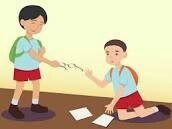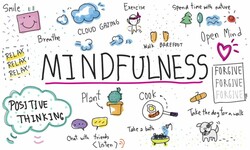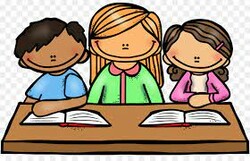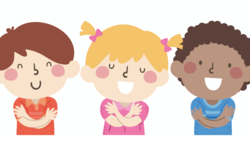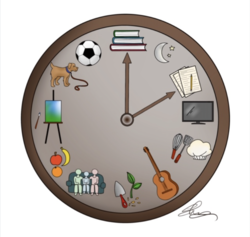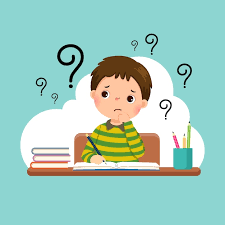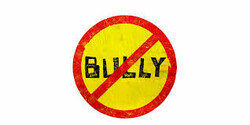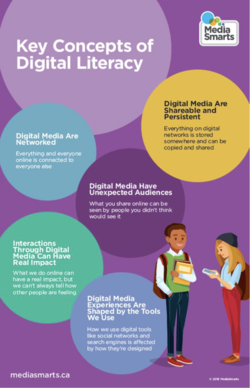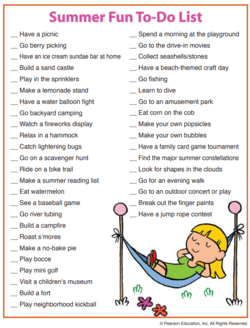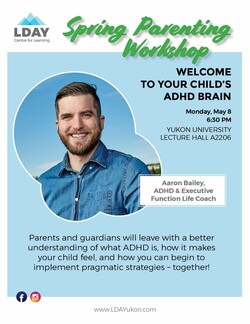Naturally, school becomes a place that puts emphasis on our academic achievements. Assignments, projects, tests, checking in, report cards, the list goes on and on. As parents we want to know how our child is doing academically, how they compare to other students their age, and what we can do to help them along. Students are taught hard to try their best and work hard. What does trying your best mean and how can you support your child at home?
As a teacher and a mom of four young children, including twins, I truly see how every child learns differently. Even my twins learn differently, it is so amazing to watch! Of course, I have always known this in my own classroom, but as a parent my own children have really been the best reminder to me that children learn and grow differently, they all have something special about them, and sometimes it isn’t about the achievement. As my children grow and talk about learning at home, these key points often come up:
- We all learn differently, and that is ok. What might be easy for one person to learn could be really difficult for someone else. What you find difficult might be easy for someone else. Everyone has something that they are good at!
- Just try your best and don’t give up. Some things are difficult. Some things take time. You’ll get there, you can do hard things, even if it takes some extra time!
- Be patient and kind to everyone. Help others when you can. Take time to connect with the people in your life.
Speaking of everyone being good at something, we also know that EQ (emotional intelligence quotient) is an important part of learning. In fact, EQ can be used to predict academic achievement, and children with a greater EQ appear to perform better academically. Developing empathy in children can promote perspective taking, tolerance and compassion, but it can also make students better readers, writers, and communicators. Generally, the literature suggests that increasing empathy can provide students with the skills to improve communication and socialization and increase their academic success.
Empathy has been described as an affective response to another person’s situation or as an awareness of the feelings of others. Children learn empathy at home, during sports, in the classroom, and anywhere social interaction occurs. We want to raise children who are happy, successful, confident and feel good about themselves. We know that habits are formed from repeating our actions over and over. Behaviours set up pathways in the brain that become easier to access with time and repetition. This means that if we respond in a certain way, maybe involuntarily at first, the behaviour pattern may become automatic. This is why modelling at school and at home are so important, we teach our kids how to act as they watch us in day to day situations. When children observe behaviours, their brains create pathways for the behaviours which they then repeat more easily, and eventually, automatically.
How do you act when you are angry? Frustrated? Annoyed? When kids have big feelings and don’t know how to act, they may resort to these learned or observed behaviors. The message should be “stay calm” or “think clearly”. Modelling this for our kids is the best way to teach them. We know that showing empathy is important and modelling it will help! We need to teach this to our children when they are calm. Tell your child to take a deep breath in through their nose, to give their shoulders a gentle shake and to wiggle their fingers. Try having them whisper quiet messages such as, “I’m okay,” or “Everything is okay.” Ask them to imagine themselves dealing with the problem in a positive way, or to imagine the problem solved. Take the time to discuss the situation in a calm way.
Another important thing to model for our kids is staying positive. Find the positive and point that out to our kids, daily. Instead of pointing out the negative, or the behaviours you want them to change, tell your child what they are doing right and they will remember that! If a day isn’t going well, find what is going well and make the best of it. Perspective can change everything. Finding time to acknowledge something great that your child did only takes a few seconds and can make their day, day after day, so much better. They will feel good about themselves, and will want to continue to do the positives.
Modelling how to act in difficult situations is so important for our children. Try to stay positive. Try to stay calm. Try to be empathetic. As you react to life, remember that there are pliable little brains seeing and hearing all that you say and do, forming pathways in their brains.
At Wes Hosford, we focus on doing the right thing even when no one is looking. We’re teaching our students to feel good about themselves, to think about others, and be kind.
If you have any questions or are looking for support, please reach out!

